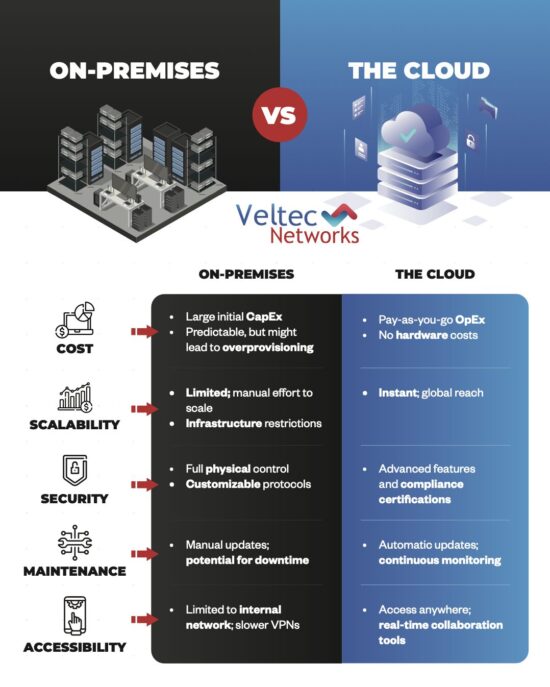Trying to decide between QuickBooks Online and QuickBooks Desktop? Check out the full comparison below to figure out which is right for you.
Which is better for you – QuickBooks Online or QuickBooks Desktop?
Before making a decision that affects your work, wouldn’t it make sense to do your homework first? If you’re considering investing in QuickBooks, but don’t know whether to go with Online or Desktop, review our comparison below to make an informed decision.
The margin for error when it comes to accounting is razor-thin. A single decimal point out of place or a couple of fractions of a percent off is all that separate right from wrong, success from failure.
The same should go for your business’ technology, right? Especially when it comes to accounting software.
While some may tell you that the most commonly used or readily available solutions are essentially the same as everything else, the truth is that you deserve — and often, need — the best tools available to you.
How do QuickBooks Online and QuickBooks Desktop differ?
QuickBooks is an accounting software suite, designed by Intuit to provide businesses with on-premises accounting applications. In more recent years they have begun to offer cloud-based versions of their software, helping users to accept business payments, manage and pay bills, and payroll functions.
Depending on your size, if you’re in the market for accounting software, you likely are considering QuickBooks. But maybe you’re unsure of whether to go with the Online version, or the Desktop version…
QuickBooks Desktop
- Updates by request
Allowing you to control whether or not to accept new changes to QuickBooks, or keep it the way they prefer. - Multiple inventory tracking options
QuickBooks Desktop offers two options for tracking inventory: the average cost method or the FIFO method (FIFO) method available when you purchase the Advanced Inventory add-on module - Batch invoicing
When the amount and type of service you are billing multiple clients are the same, this feature allows you to invoice them all at the same time. - Industry-specific versions
QuickBooks Desktop offers industry-specific features for businesses that fall into one of the following industries: General Business, Contractor, Manufacturing & Wholesale, Professional Services, Retail & Nonprofit. - Pricing
Depending on the version you require (Mac, Pro, Premier, Enterprise) QuickBooks Desktop can cost you an initial license purchase of $300-$1,100. You will also need to purchase an upgrade at least once every three years.
QuickBooks Online
- Updates features automatically
In this version, updates are automated.
While automatic updates can be convenient, more often than not, you might find it frustrating when the application they’ve gotten used to changes without warning, leaving them with extra work in order to learn how to use it over again.
- Lacks multiple inventory tracking options
QuickBooks Online only allows inventory tracking using the FIFO (First In First Out) method, which simply won’t meet the needs of every user (including you) out there. - Does not offer industry-specific versions that allow for better reporting
Without industry-specific versions of QuickBooks, you will either have to make do with a generic program for their needs, or they’ll just go with another option — or another Managed Services Provider — who can deliver. - Does not support add-on applications and plugins
Again, QuickBooks is the far more limited version of the software, which means it won’t support any type of customization that would help you and your staff. - Pricing
Modeled as a subscription service, QuickBooks Online costs anywhere from $20 – $60 per month, depending on how many users you need it for.
Which version of QuickBooks is right for you?
Many businesses have to settle for the online version of QuickBooks, either out of perceived convenience, assumed cost-benefit, or simplicity.
The subscription-based QuickBooks Online is, frankly, the more limited option. It’s designed for businesses that don’t think they need the full version, and assume that going with the lesser one with benefit their business.
Long story short?
If you have very limited needs for something like QuickBooks, then the Online version will likely be enough. But if you’re looking for something more robust, you’ll want to consider the Desktop version.
Like this article? Check out this blog about QuickBooks to learn more:






